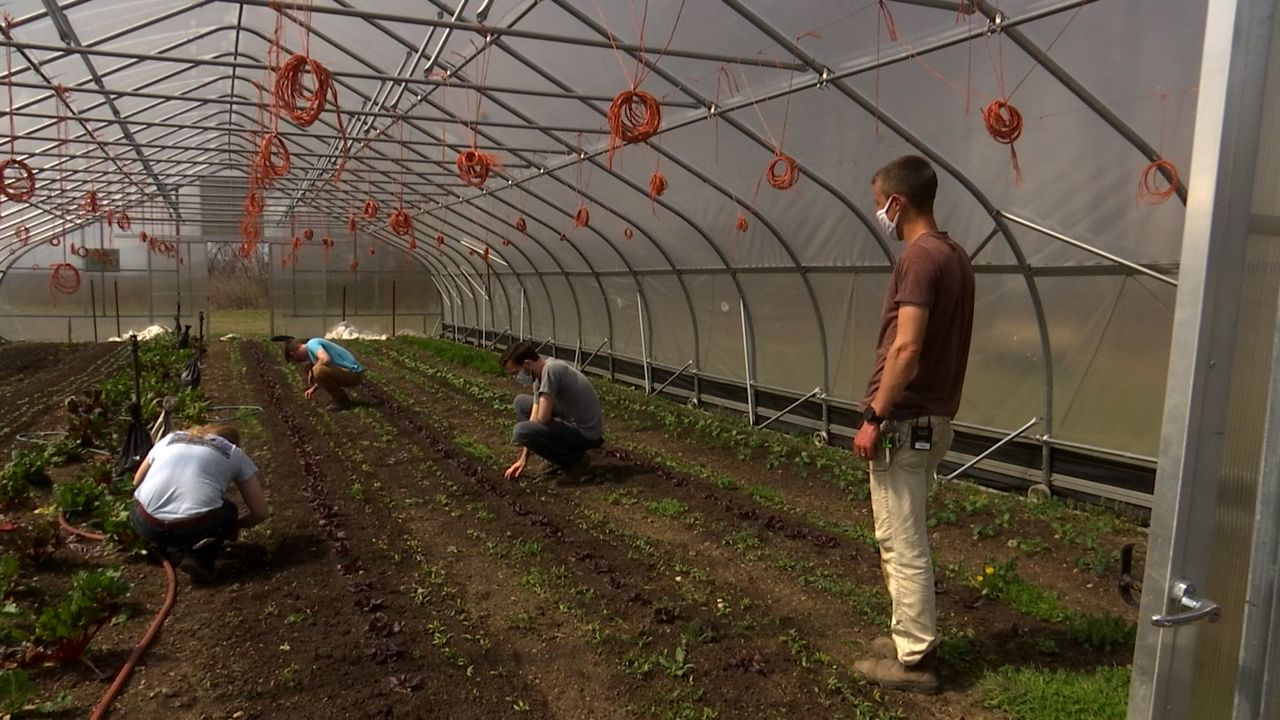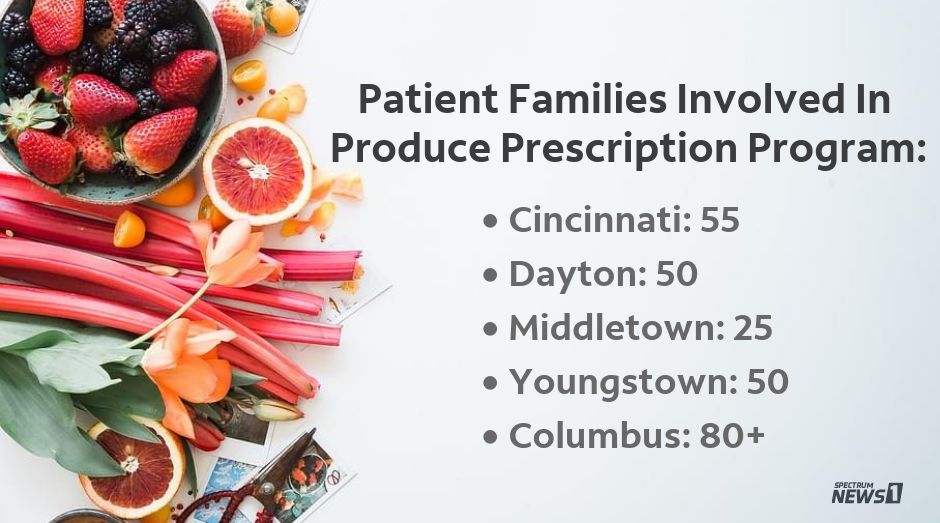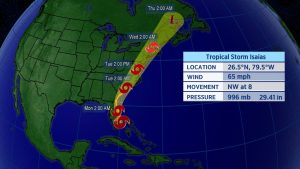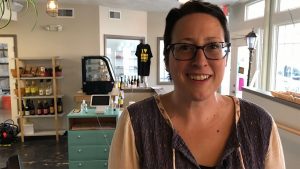DAYTON, Ohio — On Dayton’s east side, spring is in full bloom. Sprouts have become tufts of green yearning to outgrow their small plastic containers and workers at Mission of Mary Cooperative are counting the days until they’re ready to get their summer plants into the ground.
Meanwhile in the greenhouses, carrots are emerging, sweeter from their winter hibernation, as the lettuce rows beside them grow leafier and leafier. Soon these veggies will be packed away into Community Supported Agriculture Boxes to feed the neighboring community or to become its medicine.
Produce Perks launched its Produce Prescription program in 2017, expanding to Dayton a year later.
The program is a partnership between local suppliers, health care providers and Produce Perks, designed to get healthy, fresh food in the hands of those who need it most, like low-income people with diabetes, cardiovascular disease or high-risk pregnancies.
The Dayton program works with Five Rivers Health focusing 50 pregnant patients or families with newborns. These families get weekly or monthly produce boxes from Mission of Mary until their child’s first birthday.
It’s Stephen Mackell’s job to make sure those families get the variety of food they need.
“It’s an extra client base for us to serve basically,” he said. “It’s helping us. Our mission is to distribute it to people who wouldn’t be able to afford it or access it.”
As the farm manager at Mission of Mary, he said he tries to make sure the gardens grow culturally-appropriate food and ingredients their clients will want to eat.
“People are particular about what types and varieties in vegetables they want so they’ll request like mustard greens and turnip greens,” he said.
Mission of Mary started in 2009 with one garden in the city’s Twin Towers neighborhood and has since grown to six urban plots producing 60,000 pounds of food every growing season to meet the need of the community.
“We’ve grown a lot which is fun and put up a lot of green houses,” Mackell said.
He’s gotten to watch much of this growth first hand, both as a volunteer during his college years and now as one of the organization’s leaders.
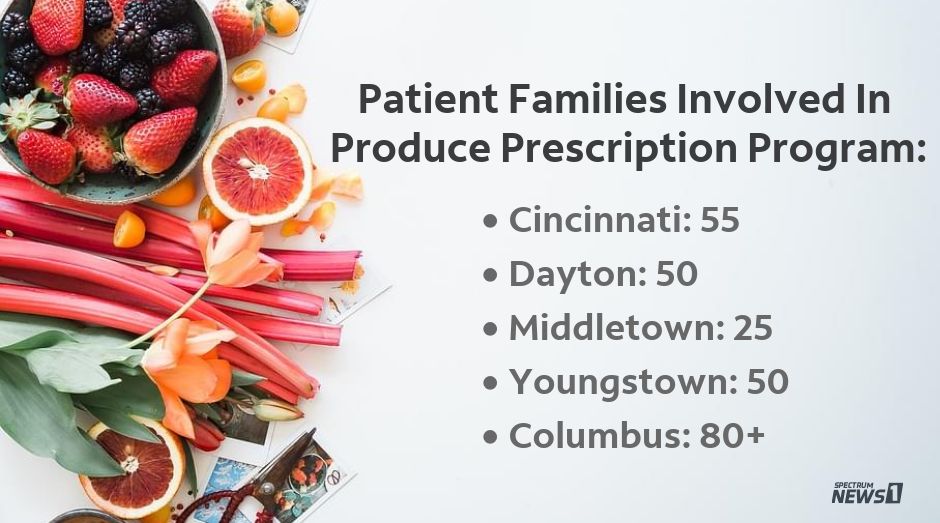
Mackell said he never planned to become an urban gardener. He studied economics.
“My interest was like social entrepreneurship and businesses,” he said.
It was the way the organization worked directly to serve its neighbors that attracted Mackell and eventually convinced him to stay on and learn with every season until he was the one teaching University of Dayton interns how to grow the best fruits and vegetables.
“These ones since they didn’t get big in the fall they kind of got to this size and then they stopped,” Mackell said pulling out a few carrots. “So we’re seeing if they take off and grow.”
According to Mackell most of Mission of Mary’s food goes into the CSA boxes they sell to the gardens’ neighbors, often at a reduced prices, but with Produce Perks buying dozens of prescription boxes every year, the organization has expanded its reach.
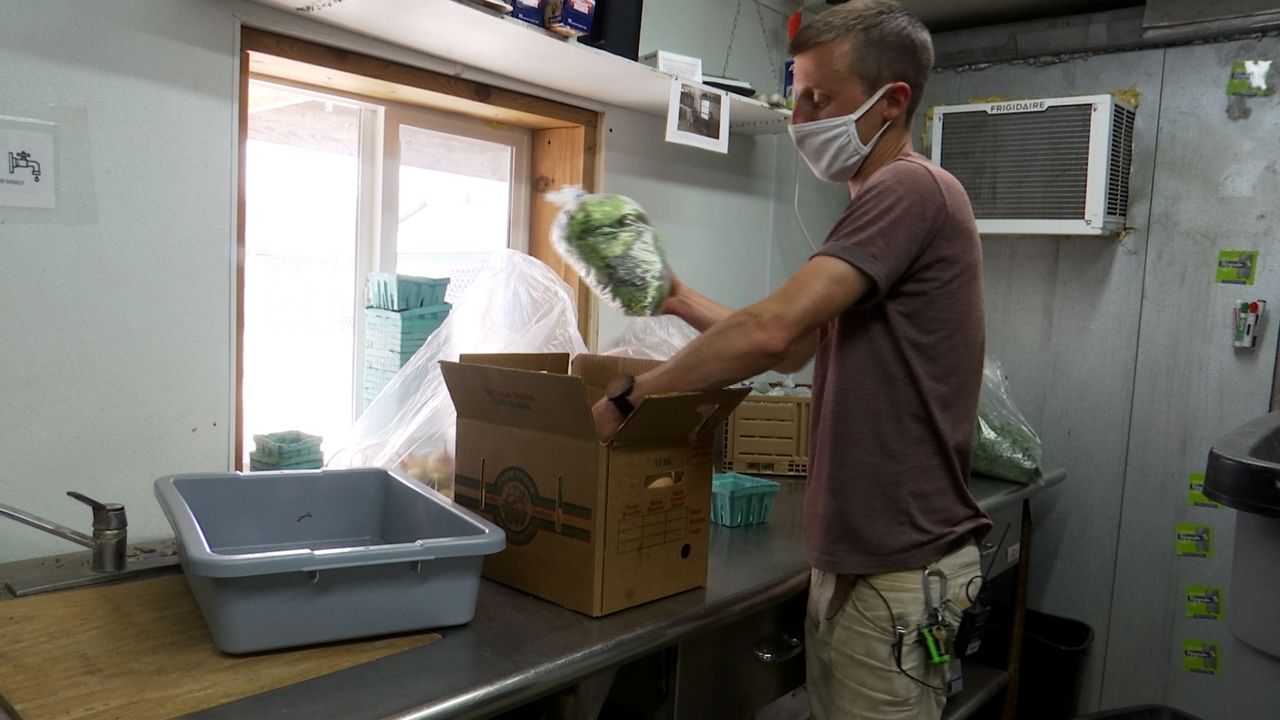
Mackell packs CSA from Mission of Mary Cooperative
This year Mission of Mary will also serve a new community just starting its Produce Rx program, Middletown, serving 25 more food insecure families through Centerpoint Health.
According to Produce Perks, the program has expanded more than 700% since it opened and its infant vitality program has been particularly successful. The program reports 94% of infants born in the program meet their target growth goals.
Meanwhile at the Mission of Mary farm, the focus is growing the best medicine to meet that need year round.
“It’s definitely affected like how much we plan to save and distribute over the winter time,” Mackell said.
That means, the greenhouses are always busy, their storage is often full, and the volunteers and interns are always hard at work, ensuring their neighbors get the food and medicine they need to live healthier lives.
